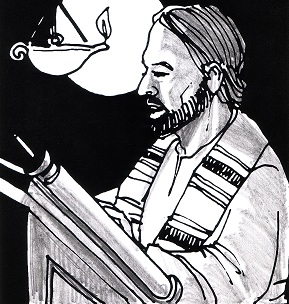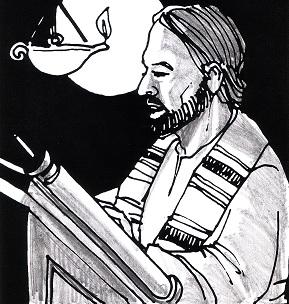

“Today this Scripture passage is fulfilled in your hearing” (Luke 4:21)
Third Sunday of the Year
Neh 8:2-4a, 5-6, 8-10; Ps 19: 1 Cor 12:12-30; Lk 1:1-4; 4:14-21
The end of the year occasions look-back lists of noteworthy lives lost -- celebrities, artists, scientists, politicians and others who made a difference in our world. The recent passing of Desmond Tutu and Thich Nhat Hanh typify individuals who lived long lives of service and inspiration. Obituaries are stories that teach us how to live, what to aspire to and what to avoid.
The story of Jesus is sometimes called the greatest story of all because it offers the epitome of human aspirations to give oneself totally for the good of others. Yet, every effort to convey the life of Jesus must straddle the little we know of his humanity and what we believe about his divinity. The four Gospels are theological lenses that interpret the human Jesus in the light of his heroic death and mysterious resurrection.
A simplified narrative might look something like this: Jesus of Nazareth was anonymous most of his life. He was just the carpenter’s son, an observant Jew, listening intently to the Scriptures and praying the Psalms. He fit into village life so thoroughly that everyone was shocked when, after he was baptized by John in the Jordan and a long retreat in the Judean desert, he returned to Galilee filled with eloquence and purpose. He said that God’s Spirit had anointed him to usher in a new way of living that would fulfill the promises made to Israel and initiate the transformation of the world..
Jesus traveled about Galilee preaching and stirring up crowds with his message and signs, but also opposition from local religious leaders, then officials from Jerusalem who questioned his radical teaching and lifestyle, his motives and claims of a special relationship with God. When he led his followers to Jerusalem at Passover, Pilate, Herod, the High Priest and the Sanhedrin agreed that he was dangerous enough to arrest and execute. This dispersed his followers for a time until reports circulated that he was alive and appearing in both Galilee and Judea.
For perhaps a decade or more, the Jesus movement was active as a Jewish cult allowed to pray in the temple. Believers shared a ritual meal and ministered to the poor in an exemplary way that attracted more believers. But it was a small group within mainstream Jewish life. This changed dramatically when missionaries, including Paul, carried the Jesus message into the surrounding Gentile world. Its impact spread rapidly after the Jewish-Roman war and the destruction of Jerusalem. The martyred Paul’s letters provided the theology that informed the Gospel witness to Jesus as God’s beloved Son, whose life, death and resurrection affirm the divine plan for human history. Paul articulated how this mystery is accessible by anyone, especially those who accept Jesus and are united to him by baptism and incorporation into his mystical body, the church.
Believers today are part of this story, not just as a memory but as a reality we celebrate as our life in Christ. Discipleship invites us to imitate Jesus, reading the Scriptures, praying as he did, listening to the same Spirit that matured within his human potential to reveal his divine identity, now also our full potential as beloved children of God. To know ourselves as members of the body of Christ is to discover and use our gifts fully, the very values we praise in the stories of those who have lived for others, even laid down their lives for causes and communities that represent the best in all of us.
The challenge is this: Do we believe that the same Spirit that anointed Jesus in the synagogue at Nazareth is also upon us today? Do we believe as we hear the story of his response to God’s call, that God is also calling us? If we do, then this Word is also coming true in our hearing.
Advertisement





